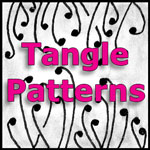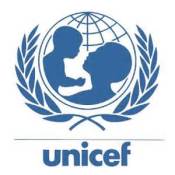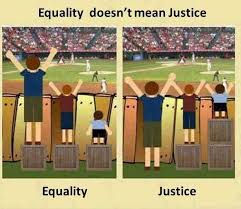I’m finding it less and less worthwhile to try to state opinions on public forums. People, it seems, are more likely to be interested in being right, regardless of whether they actually are or even fully understand the argument.
The latest example is an app called “Clean App,” which removes profanity from books and replaces the word with one that’s more “suited” to the reader’s taste. This was covered in Christian Science Monitor (http://www.csmonitor.com/Books/chapter-and-verse/2015/0306/App-removes-profanity-from-books-is-it-a-good-idea) and someone posted it to Facebook. The whole idea is offensive to me. What are the chances that if a book contains “offensive language” it also contains other objectionable material? But no, according to correspondence with the creator of the app, “American Sniper” is a great book, it just uses the word f*ck too much. Now it can be enjoyed as a clean version. The fact that it’s about America’s most lethal marksman isn’t disturbing at all–what’s a dead person compared to the word f*ck?
There are many issues around this, and that’s just one of the ones that bothers me on the level of subject material. The other is the concept that this could be the beginning of a slippery slope toward censorship, or did no one else posting on that particular conversation note that The Christian Science Monitor’s article included not one but two links to banned books? I’m not, apparently, the only one to think that. We are living in a country where religious Right beliefs are, perhaps in a backlash to the success of same sex marriage reform in the courts (slowly but surely the USA is headed toward equality in marriage), rearing their ugly little heads, and while textbooks exist in Texas claiming as fact that Moses took part in the construction of the Declaration of Independence, I am uneasy as to what direction apps like this could take. Call me paranoid, fine. I’m trying to look at the bigger picture here.
I blithely referred to it as “book terrorism,” which was a mistake on my part since people seem unable to differentiate between books and people. But I also said it to try to get people’s attention, which it did, just not the way I’d intended. One of the problems with writing and not conversing is that explaining things usually isn’t worth your time once someone gets rolling on their MO. I’m not sure why someone would immediately take “book terrorism” and equate it to terrorism against people except that’s what has been drilled into us by the media and the government. What I did is called generalization–comparing the two–it isn’t the same thing. I stand by my statement that destruction of ancient cities because they were considered blasphemous by ISIL is a terrorist act–against culture, yet another kind of terrorism. Destroying someone’s culture, their past, is one step closer to obliterating them without even killing anyone. Instead, my point was lost with one person huffing off with the comment, “I guess I’m a terrorist then. Geesh.” Another, who just said she was sorry I didn’t understand her view, simply used semantics about terrorism and killing thousands of people to “win” her argument, which had nothing to do with what I was talking about. But some people have to be right.
So how on earth, then, does this have anything to do with an app that sanitizes texts for people who have fallen out of love with reading because of profanity contained therein? It shows, for one thing, how lazy people are in finding suitable reading material. There are huge categories I avoid precisely because they are “cozy,” “spiritual,” or “Christian.” Somehow I manage to do this without an app. I like romances, but I don’t particularly care for BDSM, at least not for myself, and I manage to notice that before I buy a book, generally. Sometimes some slips in. If it’s well-written I might read it–I’m not completely close-minded. If it’s badly written I don’t. If it’s badly written chances are I may not have gotten that far. I don’t feel the need to compulsively finish books anymore; there are too many good books waiting to be discovered for me to waste my time. Another thing the creator of the app mentioned: people wasting much of their valuable money on books to find them profanity laden. Here’s an idea. Use the library. Some independent authors you’re going to have to buy–which is good for them, but too bad for the library going population who don’t have the disposable income to buy books but happen to like to read, without needing an app to help them fall in love with it again–there are a lot of authors they aren’t able to read because libraries often can’t afford to buy, or won’t buy, a lot of indie books, which is, literally, a crying shame. There are many, many indie authors who are excellent. It’s not the library’s fault; they too don’t have a lot of disposable income and have to choose carefully, and they try to buy what they think the bulk of their patrons want. And don’t get me started on how much publishers charge libraries for eBooks, that’s another subject altogether. Libraries and emergency services, the first two things to get cut. It makes no sense to me either.
Do these same people watch TV? Movies? How far will this “customization” go? Yes, books, including the bible, have been rewritten to serve the rewriter’s purposes for thousands of years. It might not bother some authors, who don’t seem to care what happens to their work as long as they get paid and no one tries to resell it. That’s one way to look at it. Yes, people may mock me for stating that I believe it smacks of censorship. One little addition to aid in the sanitization of America’s books and the dumbing down of the American mind. I can see other quotes now: “Oh, I just simply couldn’t find anything to read until Clean App came along and made everything nice and squeaky clean for me!”
I suppose I should just be happy people are reading. Maybe.
Here’s an enlightening list from the American Library Association:
Top 100 Banned/Challenged Books: 2000-2009
1. Harry Potter (series), by J.K. Rowling
2. Alice series, by Phyllis Reynolds Naylor
3. The Chocolate War, by Robert Cormier
4. And Tango Makes Three, by Justin Richardson/Peter Parnell
5. Of Mice and Men, by John Steinbeck
6. I Know Why the Caged Bird Sings, by Maya Angelou
7. Scary Stories (series), by Alvin Schwartz
8. His Dark Materials (series), by Philip Pullman
9. ttyl; ttfn; l8r g8r (series), by Lauren Myracle
10. The Perks of Being a Wallflower, by Stephen Chbosky
11. Fallen Angels, by Walter Dean Myers
12. It’s Perfectly Normal, by Robie Harris
13. Captain Underpants (series), by Dav Pilkey
14. The Adventures of Huckleberry Finn, by Mark Twain
15. The Bluest Eye, by Toni Morrison
16. Forever, by Judy Blume
17. The Color Purple, by Alice Walker
18. Go Ask Alice, by Anonymous
19. Catcher in the Rye, by J.D. Salinger
20. King and King, by Linda de Haan
21. To Kill A Mockingbird, by Harper Lee
22. Gossip Girl (series), by Cecily von Ziegesar
23. The Giver, by Lois Lowry
24. In the Night Kitchen, by Maurice Sendak
25. Killing Mr. Griffen, by Lois Duncan
26. Beloved, by Toni Morrison
27. My Brother Sam Is Dead, by James Lincoln Collier
28. Bridge To Terabithia, by Katherine Paterson
29. The Face on the Milk Carton, by Caroline B. Cooney
30. We All Fall Down, by Robert Cormier
31. What My Mother Doesn’t Know, by Sonya Sones
32. Bless Me, Ultima, by Rudolfo Anaya
33. Snow Falling on Cedars, by David Guterson
34. The Earth, My Butt, and Other Big, Round Things, by Carolyn Mackler
35. Angus, Thongs, and Full Frontal Snogging, by Louise Rennison
36. Brave New World, by Aldous Huxley
37. It’s So Amazing, by Robie Harris
38. Arming America, by Michael Bellasiles
39. Kaffir Boy, by Mark Mathabane
40. Life is Funny, by E.R. Frank
41. Whale Talk, by Chris Crutcher
42. The Fighting Ground, by Avi
43. Blubber, by Judy Blume
44. Athletic Shorts, by Chris Crutcher
45. Crazy Lady, by Jane Leslie Conly
46. Slaughterhouse-Five, by Kurt Vonnegut
47. The Adventures of Super Diaper Baby: The First Graphic Novel by George Beard and Harold Hutchins, the creators of Captain Underpants, by Dav Pilkey
48. Rainbow Boys, by Alex Sanchez
49. One Flew Over the Cuckoo’s Nest, by Ken Kesey
50. The Kite Runner, by Khaled Hosseini
51. Daughters of Eve, by Lois Duncan
52. The Great Gilly Hopkins, by Katherine Paterson
53. You Hear Me?, by Betsy Franco
54. The Facts Speak for Themselves, by Brock Cole
55. Summer of My German Soldier, by Bette Green
56. When Dad Killed Mom, by Julius Lester
57. Blood and Chocolate, by Annette Curtis Klause
58. Fat Kid Rules the World, by K.L. Going
59. Olive’s Ocean, by Kevin Henkes
60. Speak, by Laurie Halse Anderson
61. Draw Me A Star, by Eric Carle
62. The Stupids (series), by Harry Allard
63. The Terrorist, by Caroline B. Cooney
64. Mick Harte Was Here, by Barbara Park
65. The Things They Carried, by Tim O’Brien
66. Roll of Thunder, Hear My Cry, by Mildred Taylor
67. A Time to Kill, by John Grisham
68. Always Running, by Luis Rodriguez
69. Fahrenheit 451, by Ray Bradbury
70. Harris and Me, by Gary Paulsen
71. Junie B. Jones (series), by Barbara Park
72. Song of Solomon, by Toni Morrison
73. What’s Happening to My Body Book, by Lynda Madaras
74. The Lovely Bones, by Alice Sebold
75. Anastasia (series), by Lois Lowry
76. A Prayer for Owen Meany, by John Irving
77. Crazy: A Novel, by Benjamin Lebert
78. The Joy of Gay Sex, by Dr. Charles Silverstein
79. The Upstairs Room, by Johanna Reiss
80. A Day No Pigs Would Die, by Robert Newton Peck
81. Black Boy, by Richard Wright
82. Deal With It!, by Esther Drill
83. Detour for Emmy, by Marilyn Reynolds
84. So Far From the Bamboo Grove, by Yoko Watkins
85. Staying Fat for Sarah Byrnes, by Chris Crutcher
86. Cut, by Patricia McCormick
87. Tiger Eyes, by Judy Blume
88. The Handmaid’s Tale, by Margaret Atwood
89. Friday Night Lights, by H.G. Bissenger
90. A Wrinkle in Time, by Madeline L’Engle
91. Julie of the Wolves, by Jean Craighead George
92. The Boy Who Lost His Face, by Louis Sachar
93. Bumps in the Night, by Harry Allard
94. Goosebumps (series), by R.L. Stine
95. Shade’s Children, by Garth Nix
96. Grendel, by John Gardner
97. The House of the Spirits, by Isabel Allende
98. I Saw Esau, by Iona Opte
99. Are You There, God? It’s Me, Margaret, by Judy Blume
100. America: A Novel, by E.R. Frank
http://www.ala.org



























You must be logged in to post a comment.